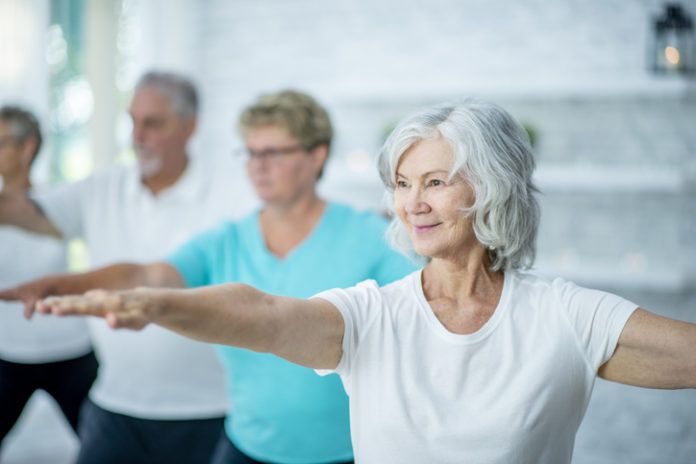Feeling blue? Maybe the ancient Chinese practice of tai chi can help. Researchers at UCLA report that a gentle, Westernized version of tai chi, when paired with a standard depression drug among a group of depressed elderly adults, led to greater improvements in depression. Patients receiving weekly tai chi training also had improved quality of life, better memory and cognition, and more overall energy than a control group combining medication with a health-education class.
This is the first study to demonstrate the benefits of tai chi in the management of late-life depression, and we were encouraged by the results, said lead investigator Helen Lavretsky, MD. We know that nearly two-thirds of elderly patients who seek treatment for their depression fail to achieve relief with a prescribed medication.
In the study, 112 adults age 60 or older with major depression were first treated with a standard antidepressant drug, escitalopram, for about four weeks. From among those participants, 73 who showed only partial improvement continued to receive the medication daily but were also randomly assigned to 10 weeks of either a tai chi class for two hours per week or a health-education class. All the participants were evaluated for levels of depression, anxiety, resilience, health-related quality of life, cognition and immune system inflammation at the beginning of the study and again four months later.
Among tai chi participants, 94% scored below 10 on a rating scale for depression, the cut-off for a diagnosis of depression, and 65% achieved remission (a score of 6 or less). By comparison, 77% of the control group achieved 10 or less, with 51% at remission. Altogether, the effects were pretty dramatic, researchers concluded. They said the control group probably also benefited, although less so, because of the social aspects of spending time with others in the class.
Depression can lead to serious consequences, including greater morbidity, disability, mortality and increased cost of care, Dr. Lavretsky said. This study shows that adding a mind-body exercise like tai chi that is widely available in the community can improve the outcomes of treating depression in older adults.… With tai chi, we may be able to treat these conditions without exposing them to additional medications.
Other recent research has shown benefits for tai chi against fibromyalgia (see our December 2010 Special Report) and for heart-failure patients (see box). Says Chenchen Wang, MD, MSc, of Tufts School of Medicine, who led the fibromyalgia trial, Tai chi has multiple components-physical, psychological, social and spiritual. It combines meditation with slow, gentle, graceful movements, as well as deep breathing and relaxation to move vital energy throughout the body.
TO LEARN MORE: American Journal of Geriatric Psychiatry, online ahead of print; abstract at dx.doi.org/10.1097/JGP.0b013e31820ee9ef. Sunset Tai Chi: Simplified Tai Chi for Relaxation and Longevityby Ramel Rones (Ymaa Publication Center).
| Heart-Failure Patients Benefit from Tai Chi Patients with chronic heart failure-historically, people considered too frail to exercise-may benefit from tai chi. A newly published study reports that tai chi improved quality of life, mood and the confidence to exercise among 50 patients with chronic heart failure assigned to 12 weeks of tai chi exercises. The tai chi group showed significantly greater improvements than a control group, which also attended twice-weekly, one-hour classes but didnt get tai chi. Patients in the tai chi group also experienced improvements in daily activity and related feelings of well-being compared to the control group. |
TO LEARN MORE: Archives of Internal Medicine, April 25, 2011; abstract at archinte.ama-assn.org/cgi/content/abstract/171/8/750.
























